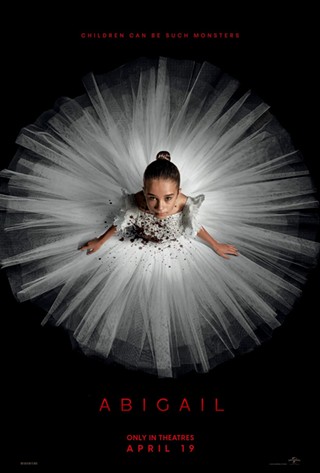So scientists should be our natural heroes, but beyond Einstein, very few scientists are known to the general public at all. On the other hand, purveyors of superstition get all sorts of tail. Montel Williams, Jimmy Swaggart, George W. Bush and John Edward love to tell people about the power of nonexistent magic, and they make massive bank doing so.
In short, it's an ugly and irrational world. Which is why a movie like Kinsey is such a breath of fresh air. Not only is it well-shot, well-acted and well-written; it's also about a man of science, someone who saw a realm of human endeavor in which little was actually known, and set about using the rigorous tools of scientific investigation to find something out about it. He may not have been perfect, but he did advance the state of knowledge for humanity, and in the process, he dispelled a good deal of nonsense and replaced it with truth.
Kinsey begins with superstition--a fellow Boy Scout tells a young Alfred Kinsey that masturbation leads to blindness. Then we cut to Kinsey's father, also a purveyor of a superstition, who is delivering a sermon in which he tells his congregation to beware all technology, because it leads to lust and depravity. The zipper, he notes, is nothing more than "speedy access to moral oblivion."
As Kinsey grows, he moves away from the fairy tales of his father and becomes a scientist, an entomologist who studies flightless wasps. But after writing two books that are read by perhaps a few dozen people, Kinsey becomes aware that the society in which he lives is in need of scientific investigation into more important matters: His students keep coming to him with questions about sex, and he can't cite any research to answer their questions.
So he sets up his own research institute, bears the brunt of attacks by prigs and prevaricators, and winds up writing the best-selling scientific tome in history. And along the way, he dispels the madness and evil of the anti-scientific forces: the simple-minded moralists who lie to advance their causes, the Freudians who betray science by wearing its robes but ignoring its methods and rigor, and the politicians who make sexual variance into criminal sexual deviancy.
Of course, Kinsey the man wasn't perfect, but Kinsey the film does a perfect job of representing that. Writer/director Bill Condon handles the intricacies of Kinsey's character with rare deftness. It's become fashionable to deconstruct our heroes, and I think this is a good thing: Blind hero worship is, ultimately, insipid. But what Kinsey recognizes is that presenting someone's flaws does not undermine their heroism; it merely satisfies their humanity. What this film shows that so many others miss is that the process of deconstructing someone always leaves a remainder, and in this case, that remainder involves a tremendous nobility of effort.
Condon couldn't have pulled this off without the help of his leads, especially Liam Neeson as Alfred Kinsey. Neeson plays his character as a man whose inherent inwardness doesn't prevent him from being social. In fact, Kinsey's social skill is the result of his adherence to a scientific approach: He meets people with an openness that puts others at ease.
There are also great performances by Peter Sarsgaard, Timothy Hutton, John Lithgow and Laura Linney. The cast, in short, is impeccable. But they have a lot to work with: Condon's script is ceaselessly intelligent and entertaining. Taking the life of a man who spent most of his time gathering and crunching data, and turning it into one of the most enjoyable films of the year, is an amazing feat.
In fact, making an enjoyable film this year seems particularly amazing, as it's been a particularly weak year. Nonetheless, Condon's greatest achievement may not be in the entertainment value of his film (which is high), but in its ability to elevate its topic. If you have dry eyes after the final scene (featuring a cameo by Lynn Redgrave) then perhaps you should check your chest to see if there's an empty cavity where your human heart should be.
What I like about Kinsey, though, is that, unlike most biopics, it doesn't just appeal to the heart: It also has something for the head. Normally, that would spell commercial death, at least in the American market, but Condon has crafted his story so carefully that even the inclusion of actual information doesn't detract from the appeal of the film. It's edutainment with an emphasis on the 'tainment. Even if you don't want to learn anything, you're sure to be amused by this tale of infidelity, pornography, sexual experimentation and graphic representations of scientific investigation.










